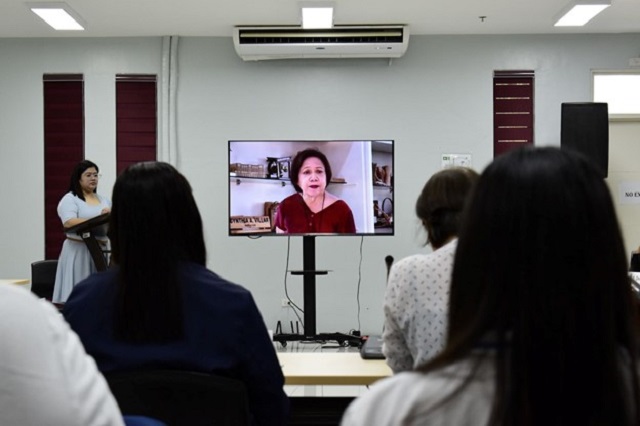
Sen. Cynthia A. Villar, chair of the Senate Committee on Agriculture and Food, cited the Rice Competitiveness Enhancement Fund Rice Extension Services Program (RCEF RESP) during its midyear review in Nueva Ecija, Aug. 10.
“The team of the Philippine Rice Research Institute (PhilRice) has [significantly] contributed in achieving the goals of the Rice Tariffication Law [of helping the farmers become competitive amidst the influx of rice from the international market],” she said.
Dr. Karen Eloisa T. Barroga, RCEF RESP vice chair, said that the program has trained more than 3,000 farmers and extensionists on PalayCheck, high-quality inbred rice and seeds, pest and nutrient management, and farm mechanization.
From January to June, extensionists and farmers have learned from more than 300 titles of information materials distributed to them and from over 300 radio segments. More than 120,000 agriculture workers and rice tillers also learned from the knowledge sharing and learning activities. The program’s social media page also recorded a 400% increase in audience reach.
“[You have demonstrated promising outcomes, but we must] show more results. [Let’s] increase income through higher yield per hectare, lower production costs, and reduce post-harvest losses],” she challenged the participants.
The RCEF Rice Extension Services Program, which funded the production of the information materials, is a component of Republic Act 11203 or Rice Tariffication Law. Sponsored by Sen. Cynthia Villar, the program is a six-year government initiative to help the farmers compete in the international rice market. The local government units and lawmakers assist in its implementation.




